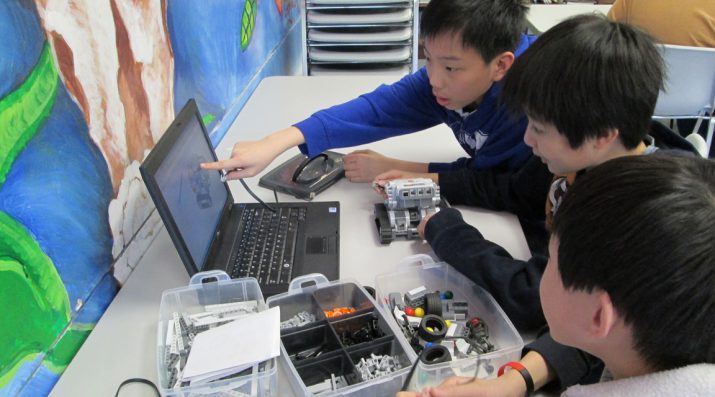
Technology has shrunk our world and made communication instant. The physical boundaries that separate nations are not applicable to today’s cyber worldfilled with unlimited possibilities, writes Gavin Dabreo, Chief Executive Officer, MLSL, NIIT Ltd for Elets News Network (ENN).
As a country aspiring for global leadership in every field, India is moving towards a new generation of skill sets and education platforms to meet global requirements. Learning and teaching methodologies therefore need to gear up to meet challenges that require unconventional approaches and out of the box thinking. Next generation learning isn’t about educating the next generation of students. It is about engaging with today’s students through learning and designs that produce significantly higher achievements compared to those under current methodologies. It requires a deeper understanding of student engagement in newer learning environments.
 Many Asian countries have already started using technology to make learning fun, and ensure that concepts are easy to understand. Malaysia, Thailand and Singapore are using tablet PCs from the first grade for improved learning outcomes. South Koreain particular needs mention as a nation that is moving towards digitisation with great speed providing computer notebooks and wireless internet to all schools. Tablets and PC’s with Keyboards are used by students as reference books, exercise books and other resources and they are finding classes more engaging and interesting. Digital textbooks also cater to multi-media and are used as dictionaries, encyclopaedias and browsers for all kinds of knowledge sources.Learning methodologies in our country too are gradually moving towards smart classrooms with the schooling segment in India poised to be around US $ 44 billion by 2020
Many Asian countries have already started using technology to make learning fun, and ensure that concepts are easy to understand. Malaysia, Thailand and Singapore are using tablet PCs from the first grade for improved learning outcomes. South Koreain particular needs mention as a nation that is moving towards digitisation with great speed providing computer notebooks and wireless internet to all schools. Tablets and PC’s with Keyboards are used by students as reference books, exercise books and other resources and they are finding classes more engaging and interesting. Digital textbooks also cater to multi-media and are used as dictionaries, encyclopaedias and browsers for all kinds of knowledge sources.Learning methodologies in our country too are gradually moving towards smart classrooms with the schooling segment in India poised to be around US $ 44 billion by 2020
The real purpose of education is to help students discover themselves and their true potential. Unfortunately this is not possible within the narrow confines of modern day classrooms where most children are literate but not ‘Educated’ in the real sense of the term. Next generation schools will have technology supported roles for deeper learning and encourage critical thinking. Multiple language options and tailored pathways with secondary options for fast, selective and career specific goals will enable a learner profile that is student centred. The learning in next generation schools will cover knowledge of subjects as well as life skills tailored to meet future needs as in vocational education. Use of technology will entail changes in the overall ecosystem impacting school operations, varying roles of teachers as stakeholders, changes in the manner and tools of learning for the student and the methodologies of learning sciences.A combination of digital media, communication and bandwidth in this scenario ensures that learning is delivered at a fraction of traditional costs. Virtual classrooms will change the educational ecosystem in unimaginable ways making interaction between students and teachers across the globe simple and seamless. The availability of text, audio, video and interactive resources will reduce large overheads and infrastructure that account for a major share of expenditure on education. Virtual classrooms can be accessed from any place that has an internet connection and in the process reduce the time and cost involved in physically commuting to schools. Institutions will have the opportunity to select high quality faculty and students from smaller cities that lack infrastructure can also have access to quality education provided they are connected to the Internet. This means a student from a backward region of the country will have the same advantage as a student living in the capital or any developed metro city.
A three screen day for consumption, production and sharing with broadband facilities at school and home will provide 24×7 learning opportunities 365 days a year, where students can have practical training and conceptual understanding in different roles as journalist, scientist, historian, inventor and coach. They will also have access to flexible ways of learning which will be personalized to suit their grasping abilities. Alternately students will have greater options to choose from like blended learning systems involving a formal education programme where they learn partly online and the restin brick and mortar classrooms away from home.
There will be a notable shift towards competency based learning which changes the dynamic of time and rewards students for skill acquired rather than the time spent in a seat in contrast to the existing system of judging students by grades. The education system and syllabi in the new scheme of things will be more relevant to job outcomes and global requirements.
Next generation schools will have greater emphasis on teacher training, where tested methodologies that encourage questioning and problem solving are used in place of learning by rote. Educators will be guided towards building a motivational profile of experiences that encourage community based learning through a fine balance between innovation and execution.
A deeper learning where adaptive assessments and complementary dashboards visually show students and instructors their individual progress is a likely possibility. This will encourage students to take ownership of their learning and make them aware of where they require additional support. Replacing the present method of teaching and evaluation with a greater sensory environment, next generation schools are all set to encourage critical thinking and problem solving.They are essential in preparing global citizens take on the world.





















